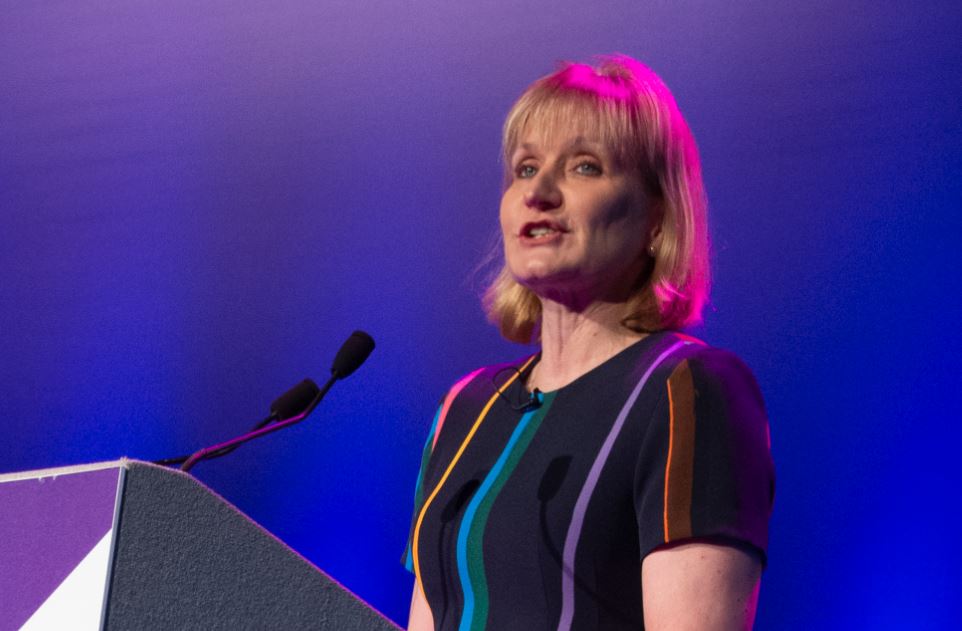
In years to come, when we reflect on 2020, it is evident that COVID-19 will be the topic that immediately leaps to mind in what was a challenging year for us all.
The triple whammy of low oil and low gas prices and the pandemic has had a hugely damaging effect on jobs, communities, and our industry. As we continue to go through this difficult time, it is of some relief that we are finally starting to see a flicker of light at the end of this very long tunnel.
Whilst we are also likely to remember the year as the one where most of us had to stay at home and move online, 2020 was an incredibly significant year in many other aspects, notably diversity, inclusion and equality.
Whilst the murder of George Floyd in May 2020, and the subsequent Black Lives Matter movement which grew in light of his tragic death, has seen the general topic of diversity & inclusion appear under a societal microscope, 2020 was not a sweeping year for positive change in all aspects of diversity, inclusion and equality. What we are seeing with the current global health emergency only seeks to worsen a long-standing worldwide predicament, for which there is no immediate vaccine. That of gender inequality.
A policy brief from the United Nations titled, ‘The Impact of COVID-19 on Women’, it states that, “Across every sphere, from health to the economy, security to social protection, the impacts of COVID-19 are exacerbated for women and girls simply by virtue of their sex.”
In November of 2020, leading gender equality campaigning charity, The Fawcett Society, published a new report linking the pandemic and gender equality. The report showed that 43% of working women in the UK say they are worried about their job or promotion prospects due to the pandemic, and that over a third (35%) of working mothers say they have lost work or hours due to a lack of childcare. It is because of stats like these that the work of the Axis Network is so important.
As the Energy Industry of Aberdeen transforms, being part of the strategic direction is incredibly important to me. In my role as Network Sponsor, I am proud to see that Axis is still leading the way when it comes to the gender agenda in our industry, addressing the issues, and realigning the imbalance across our whole sector. However, as we look into 2021, we know there is still work to be done in attracting and maintaining a diverse and equal workforce.
If the events of the previous 12 months have shown us anything, it is that real change, whilst tough, is both inevitable and unavoidable. As we move out of this pandemic, we must do everything we can to ensure that we build back a fairer and more equal industry, as we recover from the triple whammy inflicted on us in 2020.
In early November 2020, The OGUK Diversity & Inclusion Task Group launched a first-of-its-kind D&I survey. We know that this survey will not only inform us of where we currently are as an industry for all aspects of diversity, inclusion, and equality, but it will also deliver a baseline from which we can build and nurture a more inclusive and equal sector. This survey and the subsequent findings will act as an essential catalyst for action and change, as well as driving gender equality in the industry, not just for 2021, but beyond.
We know that it is our people that make this industry special, coming up with the new ideas and innovations to overcome the complex challenges the industry faces. We also know that a balanced workforce is critical not just to building an inclusive sector, but in our efforts to deliver Roadmap 2035, our pathway to becoming net-zero. By embracing our individuality and aspiring to create a workplace that is more diverse, inclusive and equal, we will reap huge benefits. Benefits such as diversity of thought, a critical skill we will need as we wrestle with the ideas and solutions needed to unlock the challenge of net-zero.
If we’re serious about achieving the many goals the industry has set itself in all aspects of our work, then people must feel empowered to be themselves, and we as an industry must attract and retain a diverse balance of people. Innovation, disruptive thinking, brave decision-making, and establishing an inclusive culture with gender equality will be essential to driving the energy transition. There is no getting away from this. 2021 is an incredibly important year for us to evolve and continue challenging ourselves to do better.
Deirdre Michie is the sponsor of AXIS, Aberdeen’s leading gender balance network. The group support individuals, leaders and organisations in the pursuit of gender balanced teams and systems.
Deirdre is the Chief Executive of OGUK, a Board member of Opportunity North East, a member of the Scottish Government’s Energy Advisory Board and a member of the Women’s Business Council, a UK Government body focused on increasing women’s contribution to economic growth.
Recommended for you
